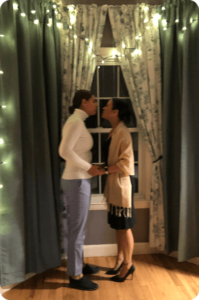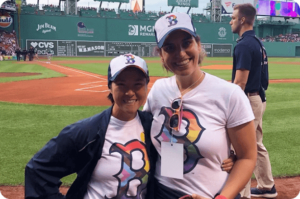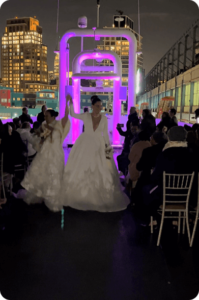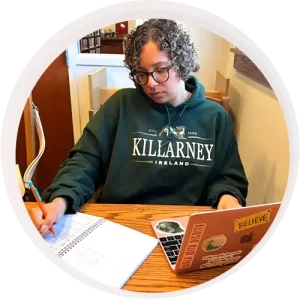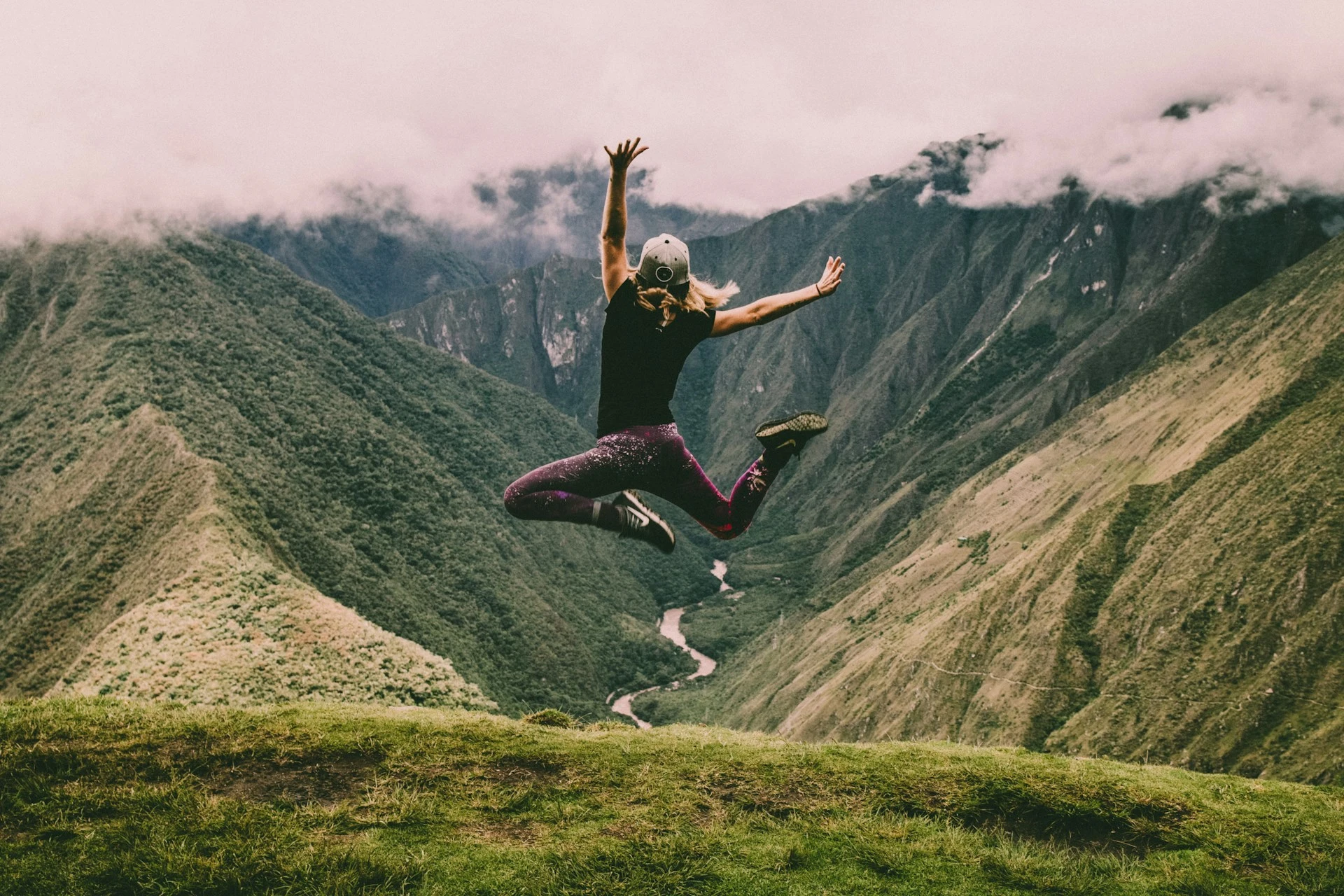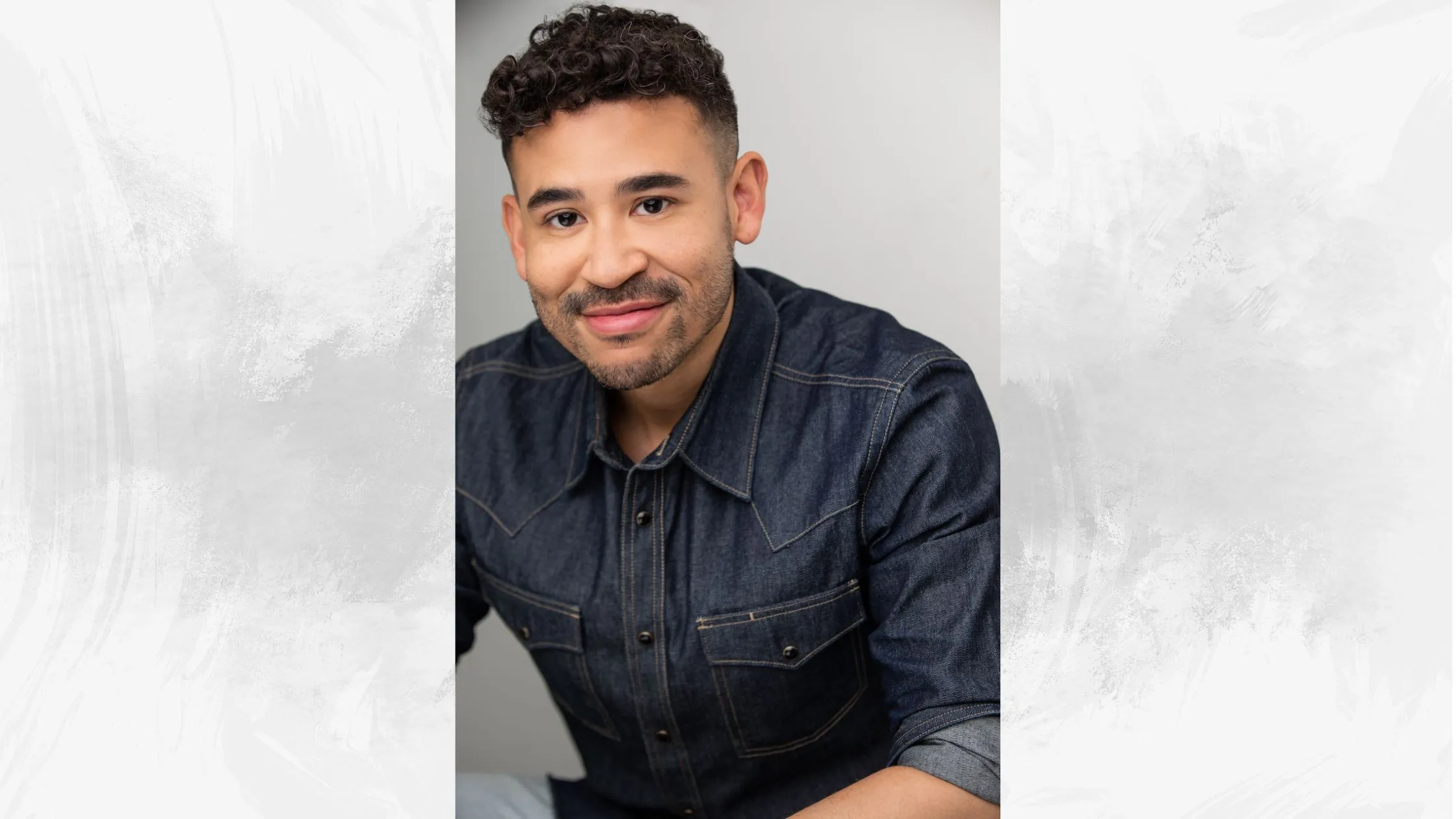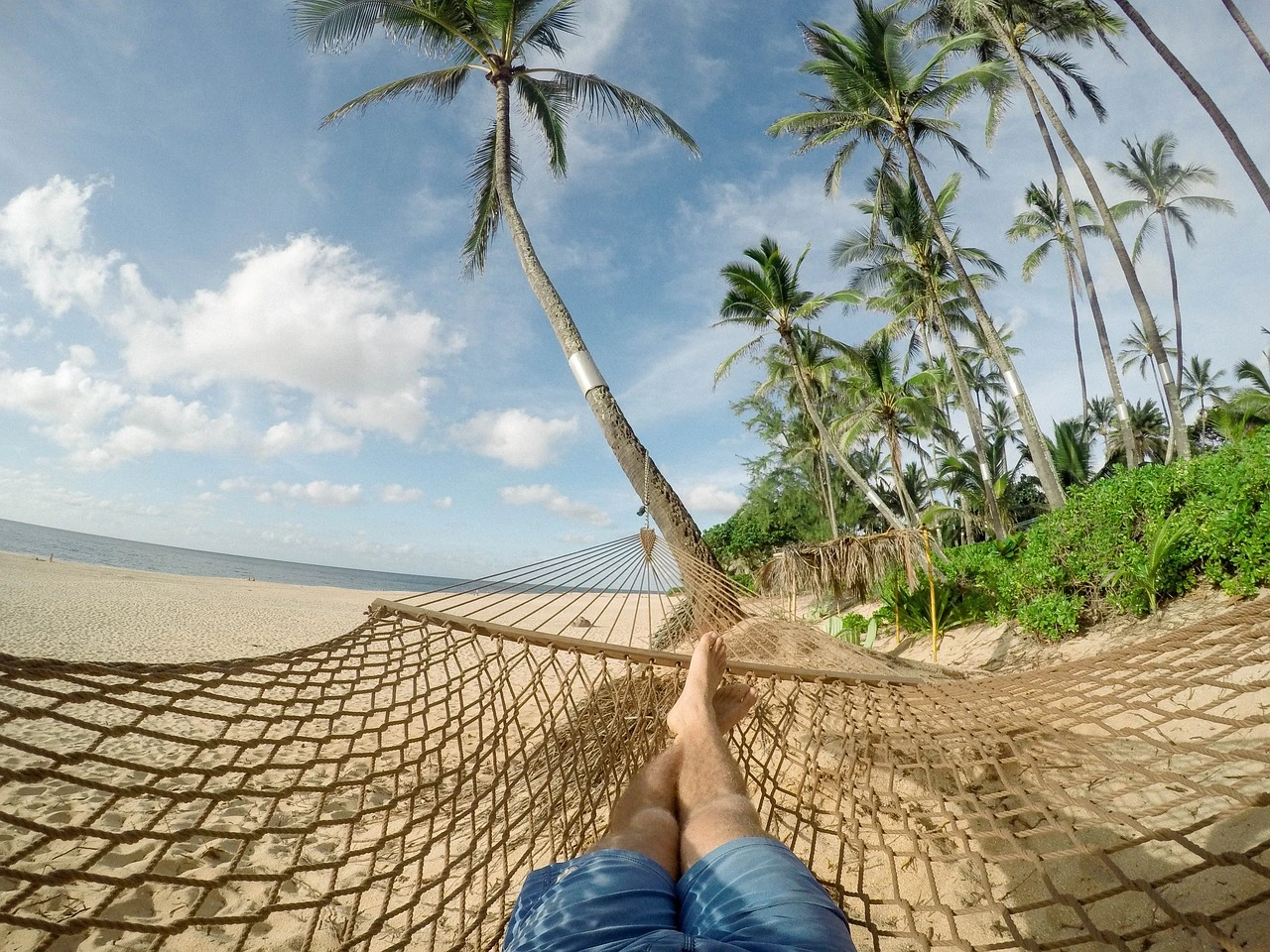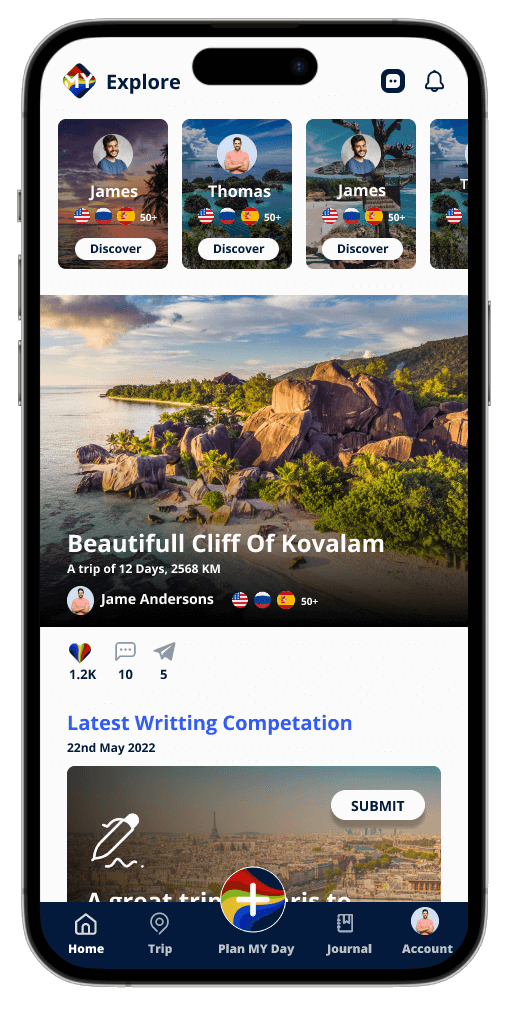For the LGBTQIA+ series, I really wanted to touch on the personal stories of what it means to be gay in the world today and how that intersects with how one travels while being gay. My first interview was with Candi Wills, a cisgender lesbian woman raised in central Pennsylvania who now lives in Malden, Massachusetts. She is starting her job soon as an assistant professor at Stonehill College in Easton and is newly married! As someone who has traveled with and without her partner, it was such a treat to pick Candi’s brain about her identity and things she’s learned along the way.
What was it like coming out? How were you received?
Well, it was a process. Some people experience it where they decide a day, but for me it happened in stages. I remember wanting to tell someone when I was sixteen in high school. I knew at that time but didn’t feel like coming out to everyone. So, flash forward, I was in Pittsburgh and a part of my process was that I was going to my first ever pride. I was about 22, Melissa Etheridge was singing—I know all of her songs—and I was with my boss’s family. At one point I was like “Everything makes sense now! I think I’m really supposed to be here.”
The first person I came out to happened to be my friend’s dad while we were hanging out at a lake. He was super conservative, Republican, Trump-voter. But for some reason I felt so safe with him. I told him I had something to tell him and said “I just don’t like men. I like girls.” His response was “Okay. Let’s get you back to an inner tube.” Of course I then had to tell my friend what we’d been talking about. I told her I preferred women, and she was super receptive! At first I really thought I was bisexual because I found some men attractive. So, I went through a phase where I was hanging out with more people of the queer community. I got engaged to a queer man and was leaving for Boston; and I was like “None of this feels right.” That’s when I recognized myself as a lesbian.
I recognize that that’s a long process, but I feel like a lot of people in the gay community have a long journey. I had every rationale to ignore my feelings because of my safety. I saw kids get severely bullied and picked on in school, and I didn’t feel safe disclosing my sexuality until I was very far away. It was almost like I couldn’t hold it in any longer. Like, my middle school gym teacher was vilified because she “looked gay” and was accused of being gay when she didn’t—and doesn’t—identify that way at all!
No, I get that! When I came out as bisexual, I was incredibly terrified. I had no idea why, but it just felt like everyone else knew better than I did on the matter. Like I had to be straight because I’d been boy crazy my whole life. You live in Massachusetts, the place for gay safety in the U.S. So, give us a taste of that glorious safety and tell me how you are received in your current community.
It’s not that anyone does anything extra here. It’s just normal to assume someone is queer as opposed to straight in Massachusetts. We’ve created a culture where we don’t make assumptions; we just take people as they are. And, like, we have Trump-voters in our area; but it’s a matter of you wave to your neighbor and they wave back to you. No one is making any comments. It’s very normalized in every space. We have pride sidewalks—actually one got defaced, but our mayor was there telling people to clean it and repaint. Maura Healey is now our governor, and she’s openly lesbian! And everyone here is in some way a part of the gay community, whether by ally or what have you. It’s on the top of all of our minds all the time to be inclusive. It’s not just tolerance but inclusion!
That’s why it’s just about the only place I have as a possible “move to” on my list of future homes in the United States! I just think I’m destined to be in another country anyway. Okay, we’re now diving into traveling! So, how important is your sexual/gender identity to you, and how does it affect how you travel?
Important? I very strongly identify as a woman; and I am strong-willed and vocal about women’s rights and feminism. When I teach, I include a feminist and inclusive view to the world. There is a lot that comes with being a woman.
Heard that!
Yeah! You just have to be more aware. I think as a queer woman, especially when traveling, the assumption is heteronormativity. Like, I talked to this guy in France. He was obviously trying to hit on me, and I was like “Yeah, I’m trying to find the lesbian bar. Can you point me there?” Like China, it’s illegal to be gay; and when I was there I didn’t come out to anyone but one other queer person who was Chinese. In Morocco, I was in a bath house—and when you’re queer, you can silently tell when others are queer—and all the women in the village were there bathing; and it occurred to me that straight women never have to think about their sexuality.
When men are assuming your orientation, it is difficult to be polite while not putting yourself in any danger. Because as a woman, I am more likely to be sexually assaulted than a man—at least statistically from those reported. Plus, I know that I’m not interested so I’m not putting those vibes out. For example, when I was in Spain, this guy from Romania asked me to come out to a bar for a night. I wasn’t naive about his intentions whatsoever. He was very touchy-feely and was not stopping with my “no,” so I went to hide in the bathroom. I joined some girls who were bar-hopping because I always feel safer with women. So, it’s definitely an added layer of security and awareness that I as a queer woman have to have.
Jeez. No, I totally get it. I’m a queer, woman of color, and it’s hard to be at the intersection of all these societal divides. I was judged when I was straight because my peers in college were onto me well before I even realized I might really like women as well as men. A friend told me I had internalized homophobia because I didn’t like people telling me I was gay at the time. Then, I was also judged in college for being lighter skinned than my peers. So, it was hard for me to really find that safe space. Surprisingly, the queer artists were the ones who accepted me the most in the end! Tell me about a time when you were judged for your identity. Where were you?
Hm. A time I was judged…I don’t know. I tend to brush people off and ignore them. I think also when I travel, not many people recognize that I’m gay. Actually, this March, I was in Lisbon; they’re pretty progressive politically, but I did realize that people in the capital city are extremely conservative! So, my wife and I—she’s Portuguese—were holding hands, and we got some strange looks. Her parents aren’t very receptive of her identity. I was introduced as her American colleague! So, even in the most-progressive communities, you have to sacrifice yourself for other people’s comfort. Other than that, I really open up unless I feel like I have to or I feel I’ll be accepted. But that was the most recent time I felt not as excited to be gay.
I love the way you phrased that. “Sacrificing yourself for other people’s comfort.” I think that’s something a lot of minorities can relate to. You touched on it a bit, but have you ever had to change yourself in order to travel? How?
Like, I would never hold hands in India or China or Morocco. I always mute myself a little bit when I travel. I like to talk to people anywhere—even if I don’t speak the language!—but I definitely tone down the parts of me that are controversial, like my enthusiastic feminist views and LGBT views. I talked to my friends recently about the “straight girl walk.” There’s a specific walk straight women do, and it’s very clear to me when I see it. Very confident, upright, I-can-take-on-the-world sort of walk. Depending on where I am, I won’t walk as relaxed; it’s to take away any association with my sexual identity. That’s more so when I’m traveling alone. I change my name, too, every time I travel.
Traveling with my wife is way more comforting. I feel very safe with her in every way.
Aww. And you are such a beautiful couple. Mom and I couldn’t wait for your wedding photos to come out!
We’ve actually already traveled across the U.S. and Portugal! So, if she feels comfortable in space, then I feel comfortable.
Like in Portugal, she said she felt fine. “People need to see us to help change their minds,” she said. We don’t hold hands in central Pennsylvania. We’re a little bit less affectionate in rural areas and around her family. I think I just always air on the side of caution.
Ah! I just love it. You’re obviously a very prepared person. You seem to know your stuff when it comes to travel, but has there ever been a moment when you wished you’d known something ahead of time?
I tend to know a lot more about how people are perceived in different countries because of my research on sex trafficking, sex-work, and criminalization of same-sex couples. I’ve traveled with queer people to many places where it’s illegal to be gay. We went to India, a group of friends and I; and while we were there, we didn’t speak about our sexualities in front of people. We were very wary about doing things that made us stand out. You can get away with a lot of things as a tourist though because people assume you’re just an ignorant American!
It’s more about what I can do as a woman rather than a queer person. It’s about covering whatever exposes you as different. You try to fit in as much as you can because as minorities you’re used to always sticking out. I was at an underground meeting for queer people in Morocco; and if we’d been caught, we would have been jailed and deported. But it was incredible to see how many people were there trying to change minds. So, I don’t think I’ve done anything yet to get me into any whoopsie issues. But something could always happen!
Wow. Your insight is just remarkable. You’ve given me a lot to think about, and I think the readers will learn some things, as well! Now for the fun part. What’s a local establishment or vacation getaway that is your safe space as a queer person? This is your time to shout out your favorite place to spend time that is super inclusive of the LGBTQIA+ community.
Honestly, it’s hard to narrow it down in Boston!
I figured as much!
Like, the whole city is just a queer space. The entire neighborhood of Jamaica Plain is so inclusive and supportive. You will see every sign down the street from “We Say Gay” to “Support Ukraine” to “Black Lives Matter,” every progressive thing imaginable. So many queer places, and bars are all queer-owned and/or queer-operated.
We have the Stonewall Sports chapter in Boston. I’m actually the national sports director! So, I get to have influence on how other cities can create inclusive spaces in places where they are traditionally not seen. It’s beautiful how supportive everyone is here. To have this impact on how other sports leagues can expand queer sports—like, we’ve just had Gainesville, Florida include laws on what it means to be an inclusive sports league! It’s like “How can we create a space that is welcoming and good for you?”
If I had to shout out one place, it would probably be Trophy Room. It’s in Boston. But we’re getting a lesbian bar soon! It’s coming next month! Dani’s Place. We’re very excited about it!
How fun! That sounds like a blast! I’ll have to definitely check them out when I visit one day! So, for my final question, what’s something the world should know about the LGBTQIA+ community? I know it’s a hard one, but it’s a time for you to get on your soapbox!
Ha! My soapbox is ten feet tall. No, but seriously. I want people to know that it is not one community. It is multiple communities with multiple identities that make up this community. We are so diverse; we have every age, religion, trauma—we have everything. Once you open the doors for such an inclusive or diverse environment to be embraced, it allows everybody else who isn’t a part of those communities to rise and benefit. So, when you help the underrepresented, you end up helping everyone. When you lend a hand, you lift up an entire community.
But on the flip side, when you hurt a person in a community, you hurt everyone. For example, you affect the rights of women with anti-trans bills because trans-women don’t conform to hypermasculinity; so it results in women who are slightly more masculine—who aren’t “feminine enough”—having to go through the same scrutiny and “gender checks” as trans-women because women are not the majority when it comes to decision-making.
Embracing diversity is a benefit to everyone.
Traveling while gay but don’t know the rules of the country? The ILGA has a multitude of resources to help you be in the know about gay rights around the world.

